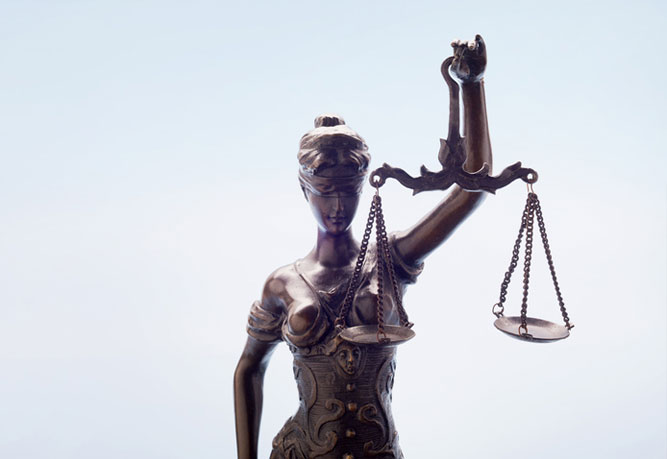In recent years, a growing number of states across the United States have introduced “Clean Slate Laws,” a legislative effort aimed at helping individuals with criminal records reintegrate into society by offering a fresh start. These laws allow for certain criminal records to be sealed or expunged after a specified period, typically if the individual has demonstrated good behavior and maintained a clean record post-conviction. While the intent of these laws is to promote fairness and reduce the barriers that individuals with criminal histories face, they also introduce a range of implications for employers, particularly in the realm of background screening.
What Are Clean Slate Laws?
Clean Slate Laws are designed to provide a second chance for those who have been convicted of crimes but have since turned their lives around. Under these laws, individuals who meet certain criteria may have their criminal records sealed or expunged. This means that certain past offenses may no longer be visible to potential employers, landlords, or others who typically conduct background checks. The eligibility requirements for record sealing or expungement vary from state to state, but they generally include factors such as:
- A specific waiting period after completing their sentence (including probation or parole)
- No subsequent criminal convictions during the waiting period
- A demonstration of good conduct, often verified by court records
The ultimate goal is to help those who have paid their dues and reformed to overcome obstacles like finding stable employment, housing, and other opportunities that are often closed to people with criminal records.
The Impact on Employers
Employers rely on background checks as part of their hiring process to ensure that they are making informed decisions. Criminal background checks are an essential component in protecting the workplace, maintaining safety, and meeting industry-specific regulations (e.g., healthcare, financial services). However, with the implementation of Clean Slate Laws, employers are now faced with several considerations.
- New Compliance Responsibilities: In states where Clean Slate Laws exist, employers must understand which criminal offenses have been expunged or sealed and adjust their hiring practices accordingly. In many cases, it may be prohibited for an employer to ask about or consider certain types of criminal records that have been sealed under these laws.
Additionally, New York broadened its requirements for employers when notifying candidates about their background check results that reveal a criminal record conviction.
- Potential Reduction for Bias: Clean Slate Laws are designed to reduce discrimination based on past mistakes. By eliminating the visibility of certain criminal records, the laws create an opportunity for employers to hire individuals based on their qualifications rather than their past. For companies that embrace diversity, inclusion, and second-chance hiring, Clean Slate Laws can present a positive opportunity to tap into a wider pool of candidates who might otherwise have been overlooked due to their past criminal history.
- Background Checks May Not Provide a Full Criminal History: In states with Clean Slate Laws, a candidate’s past convictions that have been sealed or expunged will no longer appear on background screening reports. This could lead to situations where employers believe they are hiring someone without a criminal history, only to discover later that the individual has a criminal past that was sealed or expunged. In addition, for those that run periodic background checks, they may find that criminal records that were previously reported may not be reported on future checks.
Recent Clean Slate Laws
The following states join Pennsylvania, New Jersey, Utah, Connecticut, Colorado, California and Michigan in passing Clean Slate laws.:
Delaware’s Clean Slate Law (SB111) began implementation in August 2024. Eligible records include arrest records without conviction, some drug convictions, many misdemeanors five years after the date of conviction, and some felony convictions after 10 years.
New York (S7551A/A1029C) went into effect in November 2024 and automatically seals misdemeanor convictions after three years and felonies eight years after sentencing or release from incarceration, whichever is later, providing no new criminal convictions during the waiting period. Once the time period expires, the convictions will be automatically sealed if there are no criminal charges pending, and any parole or probation has been completed.
Minnesota (HF2023/SF2055) went into effect on January 1, 2025; however, due to technical issues and delays, automatic expungement will most likely begin after May 2025. Expunged convictions will include petty misdemeanors and many other misdemeanors two years after the discharge of the sentence and some felony offenses five years after the discharge of the sentence.
Oklahoma (HB3316) will be in full effect in 2026; however, some records will begin to be removed in 2025. This law automatically expunges cases that were dismissed, the person was found innocent, charges were deferred and later dismissed, some misdemeanors and some nonviolent felonies.
Maryland (HB545/SB398) will be in full effect by July 2027, but records will begin the expungement process in October 2025. Eligible misdemeanors after seven years have passed, and other non-conviction and arrest records after three years have passed.
Washington D.C.’s law (D.C. Law 24-284) went into effect in 2023, but it was unfunded until March 2025. Automatic expungement will begin January 2026 and includes arrest records without a conviction, some misdemeanors after 10 years, decriminalized or legalized offense and certain marijuana offenses.
Viginia’s Clean Slate Law (SB1339/HB2113) automatic expungement process has been delayed and will go into effect in July 2026. Records to be expunged include some felonies after 10 years and misdemeanors after seven years.
Conclusion
Clean Slate Laws represent a significant shift in the way society views and handles criminal records. While they offer individuals a second chance to rebuild their lives, they also introduce new challenges for employers. Employers must adapt by understanding the laws in their states, reviewing their hiring policies, and using background screening processes that are compliant with the law. Embracing these changes can open the door to a more inclusive, fair, and rehabilitative approach to hiring while still maintaining a safe and compliant workplace.



